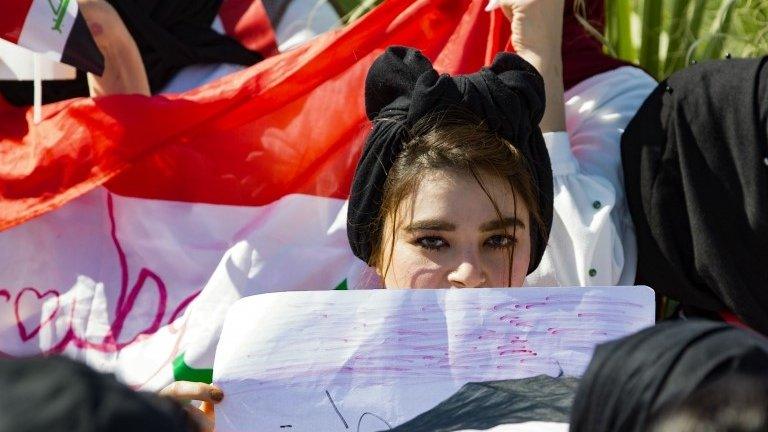Iraq unrest: PM Abdul Mahdi to resign after bloodiest day in protests
- Published
Iraqi protesters celebrate as the PM says he will step down
Iraqi Prime Minister Adel Abdul Mahdi is to submit his resignation, his office says, after more than 40 people were killed on the bloodiest day since anti-government protests began.
Iraq's top Shia Muslim cleric condemned the use of force against protesters and called for a new government.
About 400 people have been killed in protests since the start of October, and at least 15 died on Friday.
Iraqis are demanding jobs, an end to corruption and better public services.
UN Secretary General Antonio Guterres said he was "deeply concerned over reports of the continued use of live ammunition against demonstrators" and called for "maximum restraint".
Why is Abdul Mahdi resigning?
The statement said he would present his resignation to parliament so lawmakers could select a new government.
It came after Grand Ayatollah Ali al-Sistani called for a new government.
"In response to this call, and in order to facilitate it as quickly as possible, I will present to parliament a demand [to accept] my resignation from the leadership of the current government," the statement signed by Mr Abdul Mahdi said.
The statement did not say when his resignation would take place. On Sunday parliament will hold an emergency session to discuss the crisis.
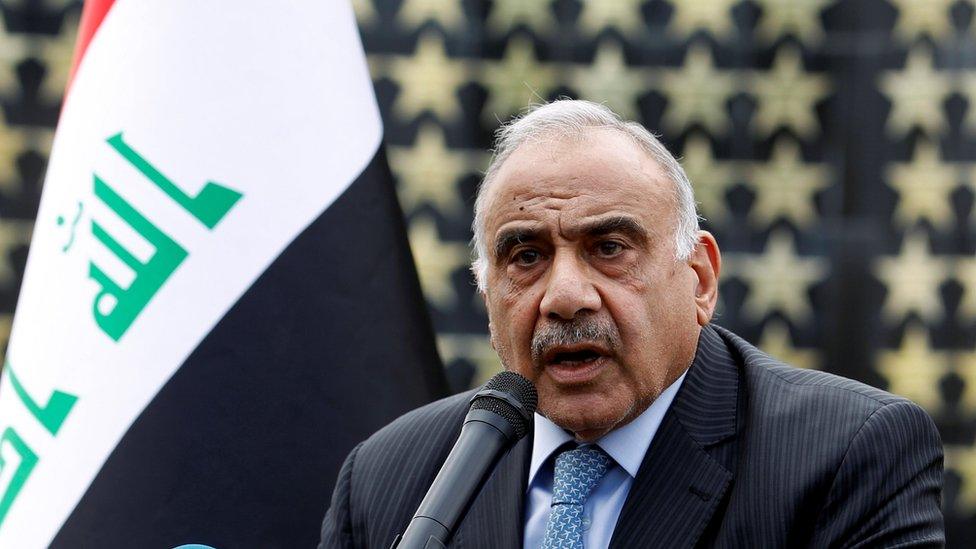
Mr Abdul Mahdi's government has been criticised by the country's top Shia cleric
Earlier on Friday Ayatollah Sistani said the government appeared to have been "unable to deal with the events of the past two months".
"Parliament, from which the current government emerged, must reconsider its choices and do what's in the interest of Iraq," he said in remarks delivered by his representative during a televised sermon in the city of Karbala.
The ayatollah said attacks on peaceful protesters were "forbidden" and also urged demonstrators to avoid violence and "eject vandals" from their midst.
Mr Abdul Mahdi has offered his resignation before but the intervention by Ayatollah Sistani, the most influential man in the country, makes things different now, BBC Middle East editor Jeremy Bowen reports.
What is happening in Iraq is part of a wave of unrest across the region, much of it driven by the anger of those under the age of 30 who are fed up with unemployment, unreliable public services and what they consider as corruption by the country's elite, our correspondent adds.
Mr Abdul Mahdi had earlier ordered an investigation into Thursday's violence in Dhi Qar and Najaf provinces.
What's the background?
Mr Abdul Mahdi took office just over a year ago, promising reforms that have not materialised. Young Iraqis took to the streets of Baghdad for the first time at the beginning of October.
Watch protesters running away from the sound of rapid gunfire in Nasiriya
After the first wave of protests - which began in October, lasted six days and saw 149 civilians killed - Mr Abdul Mahdi promised to reshuffle his cabinet and cut the salaries of high-ranking officials, and also announced schemes to reduce youth unemployment.
But the protesters said their demands had not been met and returned to the streets in late October. The demonstrations escalated and spread across the country after security personnel responded with deadly force.
At the end of October Mr Abdul Mahdi offered to resign if parties could agree a replacement.
What's the latest?
On Friday at least 15 people were killed in fresh clashes in the city of Nasiriya.
Protesters have been celebrating Mr Abdul Mahdi's announcement. In Baghdad, a protester called Hejar told the BBC it was a win for the protesters, but there were more demands.
"It is our first demand. That will change something. Then our second demand is to shut down the parliament. We're hoping it's going to happen because our young guys are very strong and they have their words, we say that we're going to stay here," he said.
Hejar said protesters would remain on the street despite the use of lethal force against them.
"It is hard for us, like it's hard for everyone to see how the security forces are dealing with us, how they're killing us by tear gas, live ammunition. And it's tearing us apart, but we are strong and we're going to stand still and demand what's right for us."
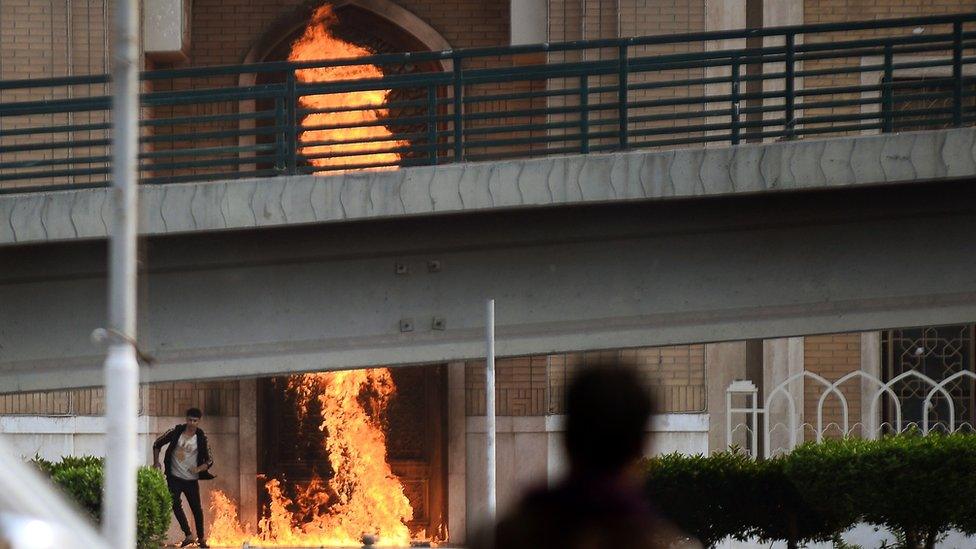
More demonstrations took place in Najaf on Friday
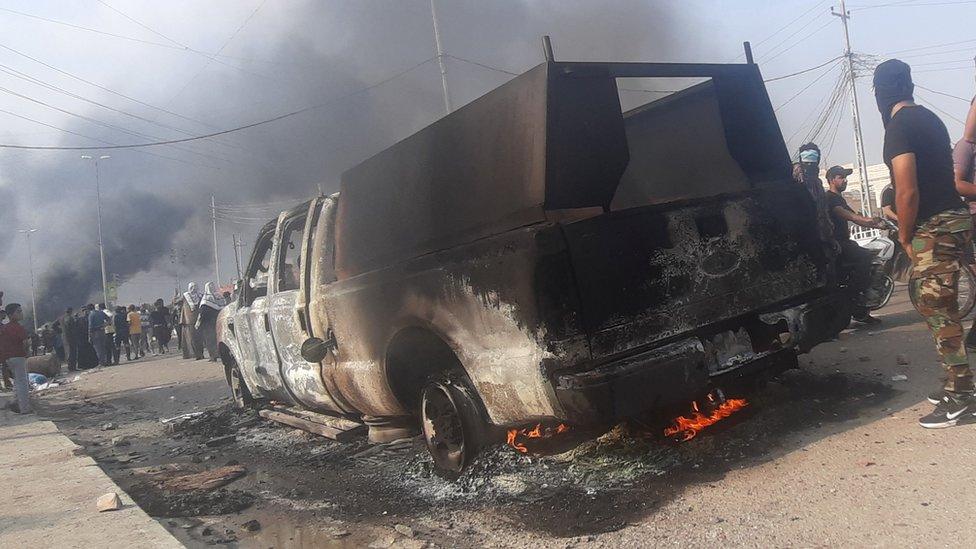
There were also further clashes in Nasiriya
Earlier on Friday large crowds attended funerals for those killed in the city of Najaf. The deputy governor of Najaf has resigned, following the governor who resigned on Thursday.
What happened on Thursday?
Amnesty International's Middle East research director, Lynn Maalouf, accused security forces of "appalling violence against largely peaceful protesters". In the bloodshed on Thursday:
At least 25 people died in Nasiriya when security forces opened fire to clear bridges there. Protesters responded by torching a police station
Ten protesters died in the city of Najaf after security forces cracked down following the burning of Iran's consulate, and a curfew is in place
Another four protesters died in Baghdad as protesters tried to cross a bridge towards the so-called Green Zone that hosts the country's parliament
Protester Safaa al Saray died after being hit on the head by a tear-gas canister
Why did protesters target an Iranian consulate?
Many of those taking part have expressed anger at Iran's influence over Iraq's internal affairs, which has steadily grown since the US-led invasion that toppled Saddam Hussein in 2003.
The story behind an abandoned high-rise building taken over by protesters in Baghdad
Protesters accuse Iran of complicity in what they see as Iraq's governance failure and corruption.
They chanted "Iran out of Iraq" as Iran's mission in Najaf burned. The city is the seat of Iraq's Shia religious authority and the location of the revered Imam Ali shrine, where the son-in-law of the Prophet Muhammad is buried.
It is the second attack on an Iranian consulate in Iraq this month after an office in the Shia holy city of Karbala was targeted three weeks ago.

- Published28 November 2019
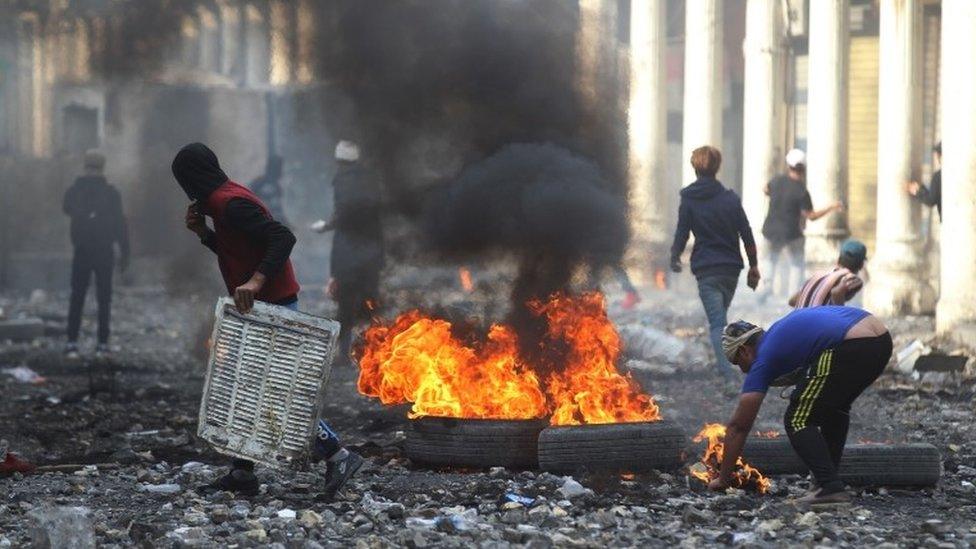
- Published4 November 2019
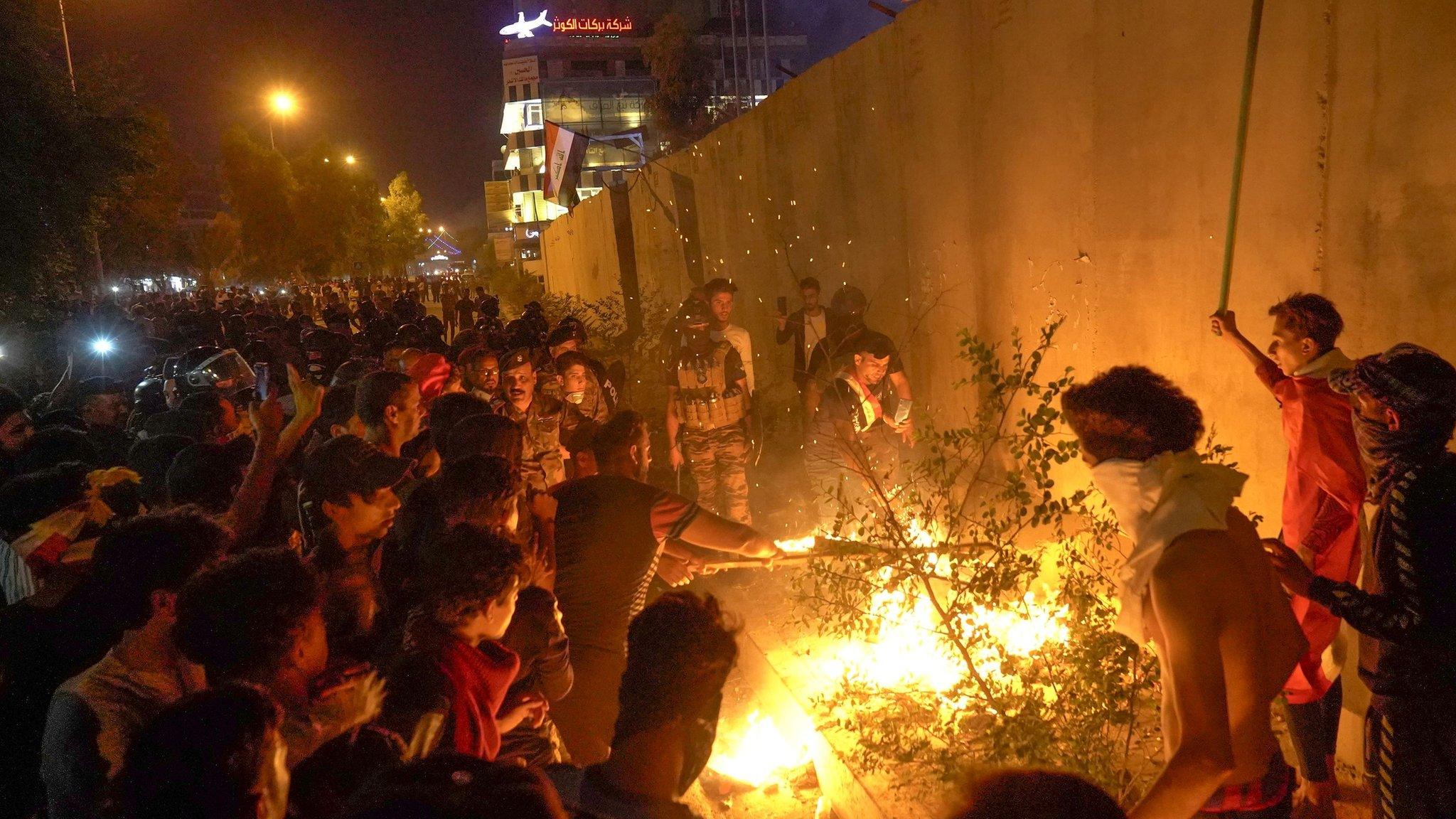
- Published23 November 2019
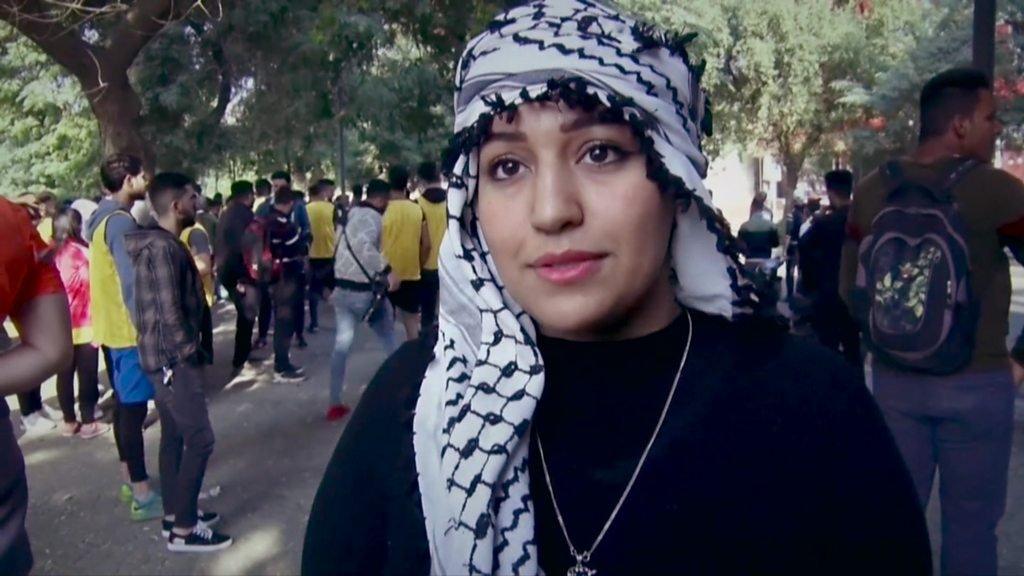
- Published7 October 2019
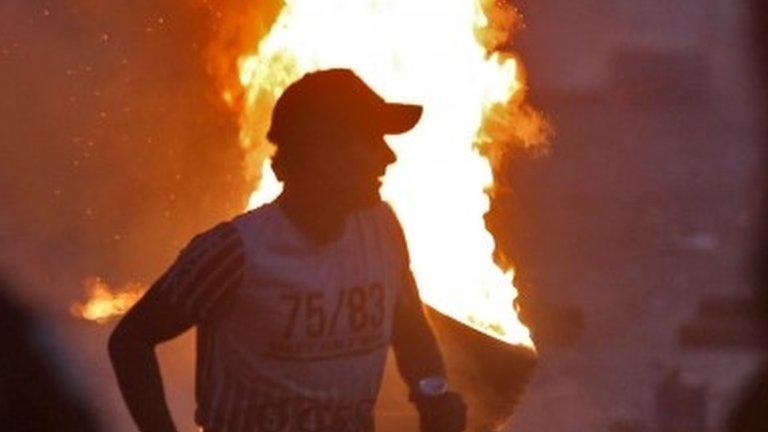
- Published29 October 2019
